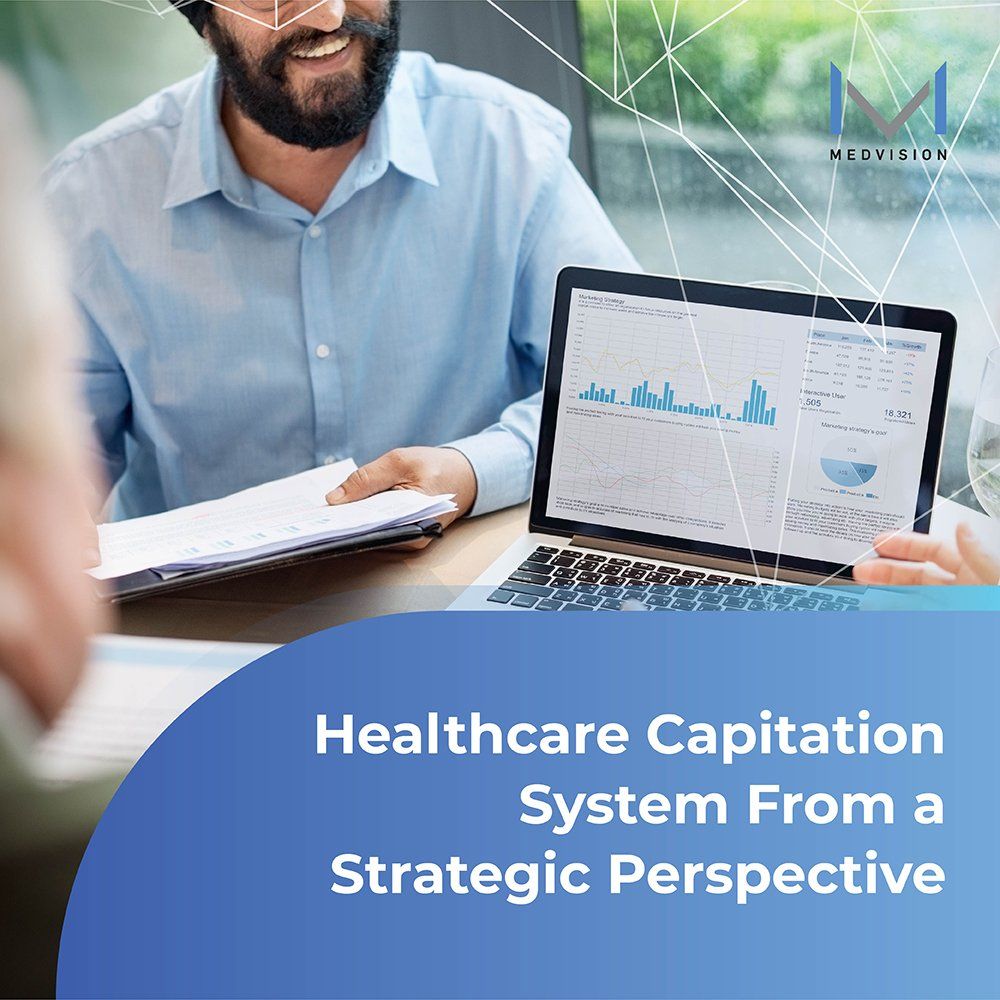How Implemented Capitation Improves Healthcare Models
Healthcare systems are increasingly growing accountable for the cost, quality, and equity of patient care. This movement has encouraged providers to innovate and create plans that benefit health populations in served localities. One of the most considered and successful approaches has been through capitation.
Capitation refers to a set amount of money that is paid for each member. The provider or physician can receive this fixed amount every month regardless of any healthcare usage or application. More and more healthcare organizations now use capitation, which gives them
greater control over cash flow predictability. The
fixed monetary amount per patient paid in advance serves to edge out traditional fee-for-service (FFS) payment systems. Traditional FFS systems are costly to maintain, operate, and require manual manpower to address functionality gaps.

The Best Capitation Practices for Healthcare Organizations
The healthcare industry is moving towards more value-based payment systems and away from FFS arrangements. One of the advantages of using value-based payment systems is capitation utilization. Capitation benefits providers and their patients through its highly effective and easy to understand ways.
Streamlined Capitation Adjudication
Healthcare organizations utilize capitation to invest in infrastructure and processes that improve their care coordinating practices. The predetermined monetary amount that comes in monthly can elevate the way they provide and deliver essential healthcare treatment measures. Essential care coordination encompasses the delivery of suitable value-based care and preventative measures to keep target populations healthy.
Improved Provider Service Quality
To meet quality standards and goals, healthcare organizations benefit from capitation through infrastructure investments. Value-based services seemed to be effective in addressing health population concerns. When successful healthcare models apply a quality withhold to reimbursements, healthcare quality targets become unlocked.
Stronger Administrative Control
A technology-led approach based on strong analytics input is critical to the success of any healthcare organization. A comprehensive operating model accomplishes interdisciplinary functions that allow care teams to close care gaps. Care coordination and delivery are better fulfilled during patient interactions, maximizing the value of each encounter.
Opportunities in Implementing Healthcare Operational Practices
The healthcare population is steadily growing diverse, with many patients becoming homebased due to multiple health concerns. Few healthcare models have yet to address the widening equity in health populations, especially the underserved. This could be why the Centers for Medicare & Medicaid Services (CMS) has launched its newest model.
The Accountable Care Organizations Realizing Equity, Access, and Community Health, or ACO REACH, is set to launch in January 2023. The new model aims to deliver healthcare equity, especially those in underserved communities. With an eye on reaching more of the health population, CMS looks to
increasing accountability for healthcare organizations.
Prospective participants need to evaluate governmental requirements as well as operational needs, such as personnel and technology. A streamlined capitation payment technology can increase the efficiency of organizations and providers. Also, a capitation payment solution is important since networked providers can be complicated with payments to different specialists. This approach eliminates any inefficiencies and unexpected costs from manual processes caused by functionality gaps.

Integrating Technology Solutions into Capitation Healthcare
A capitation payment model solution encourages payers to control spending and rein in wasteful healthcare utilization. Capitation payments encourage greater transparency, provider accountability, lower care costs, and stronger health outcomes. Consequently, industry standards are pushing to incorporate technology-based preemptive and proactive health-related activities into organizations. With the move towards automation, healthcare organizations are switching to strategic technological integrations.
Approaching three decades in cutting-edge technology, MedVision has been focused on developing powerful value-based administrative healthcare solutions. MedVision’s QuickCap (QC7) is crafted to optimize essential healthcare processes by seamlessly integrating it into your current workflows. Featuring innovative, intuitive, and customizable features, QC7 automates and simplifies all your
operational processes.
QC7 supports diverse healthcare organizations engaged in multiple aspects of the industry, including ACOs, Direct Contracting Entities (DCEs), Management Services Organizations (MSOs), and many more. Even better, QC7 strengthens ACO REACH interconnected and interdisciplinary workflows with:
- Robust credentialing operations
- Streamlined capitation administration
- Efficient claims management
- Powerful payment operations
- Comprehensive report generation
QC7 is your ultimate tool to help you advance your healthcare organization in providing high cases of positive patient outcomes. Developed for busy industry players like you, QC7 is built to be your consummate value-based administrative solutions. Allow us to support and help you in automating your business so you can focus on what truly matters.
Empower your business today!
References:
1. Capitation Payments | Understanding Capitation | ACP. “Capitation Payments | Understanding Capitation | ACP.” www.acponline.org. Accessed June 9, 2022. https://www.acponline.org/about-acp/about-internal-medicine/career-paths/residency-career-counseling/resident-career-counseling-guidance-and-tips/understanding-capitation.
2. Harvard Business Review. “The Case for Capitation.” hbr.org, July 1, 2016. https://hbr.org/2016/07/the-case-for-capitation.
3. Andoh-Adjei, Francis-Xavier, Bronke Boudewijns, Eric Nsiah-Boateng, Felix Ankomah Asante, Koos van der Velden, and Ernst Spaan. “Effects of Capitation Payment on Utilization and Claims Expenditure under National Health Insurance Scheme: A Cross-Sectional Study of Three Regions in Ghana - Health Economics Review.” BioMed Central. healtheconomicsreview.biomedcentral.com, August 27, 2018. https://healtheconomicsreview.biomedcentral.com/articles/10.1186/s13561-018-0203-9.
Explore Related Blogs
Recently published articles
Keep in touch
Subscribe to get the latest update
Trending topics
Share your insights on social media
Upcoming events and company news













